A South African Defence Force (SADF) and a police base were built close to the school in the late 1970s. This strategy was used by the SADF to discourage attacks on the base by PLAN and to isolate SWAPO from the population.
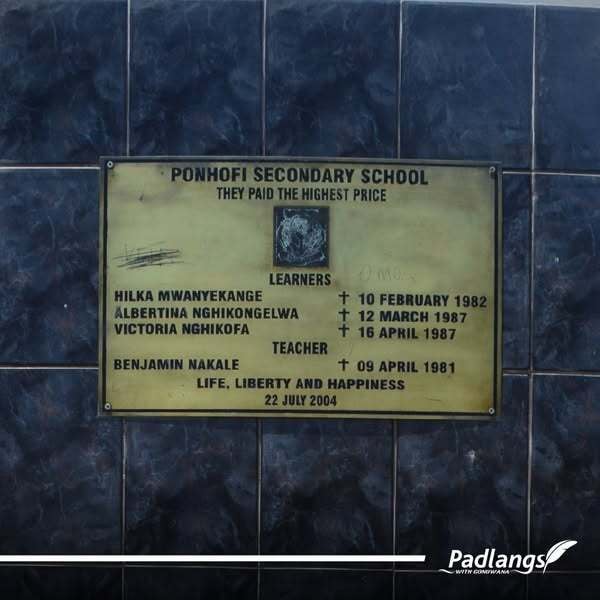
This strategy inevitably led to learners being shot, killed and injured by South African soldiers, as well as being caught in the crossfire when PLAN attacked the base. The names of those killed during the war are inscribed on a plinth in the Ponhofi school grounds. A teacher, Benjamin Nakale, died when he set off a landmine while he was on his way to the school on 9 April 1981. A female learner, Hilka Mwanyekange, was shot dead and another learner lost her leg when they left the school grounds to look for wild fruit and were fired on by the South African forces on 10 February 1982. Again, on 3 March 1986, a female learner was shot dead and another wounded in the leg.
Then, in the early morning hours of 12 March 1987, a mortar hit the girls’ dormitory, killing one female learner, Albertina Nghikongelwa. Another female learner, Victoria Nghikofa, went into a coma and died of her wounds in the Oshakati hospital on 16 April 1987. Seven other female learners were injured.
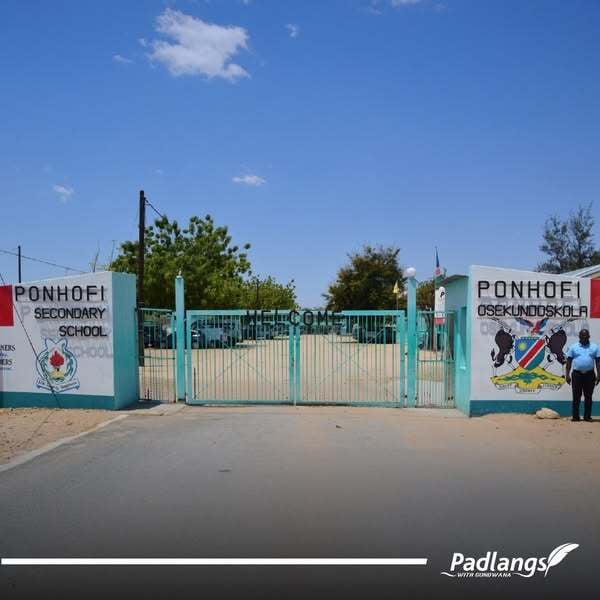
Resistance against the presence of South African military bases close to schools in the north of the country reached boiling point when learners at Ponhofi Secondary School went on an indefinite school boycott, demanding the removal of the base, on 17 March 1988. The boycott soon spread to 40 primary and secondary schools in solidarity with the Ponhofi Secondary School boycott in Owambo, Tsumeb, Windhoek, Gibeon, Walvis Bay, Swakopmund and Arandis. By June 1988, about 40,000 learners were boycotting school and called for the abolition of Bantu education and for the implementation of United National Resolution 435. In solidarity with the striking learners, the National Union of Namibian Workers (NUNW) called a three-day stay-away in June 1988 and some 60,000 workers heeded the call.
The strike was called off by Namibia National Students Organisation in July 1988, but learners of Ponhofi and two other schools continued their boycott for some time. The 1988 school boycott, which started at Ponhofi Secondary School, marked the first time that learners challenged the South African government’s continued presence in Namibia on a national scale.


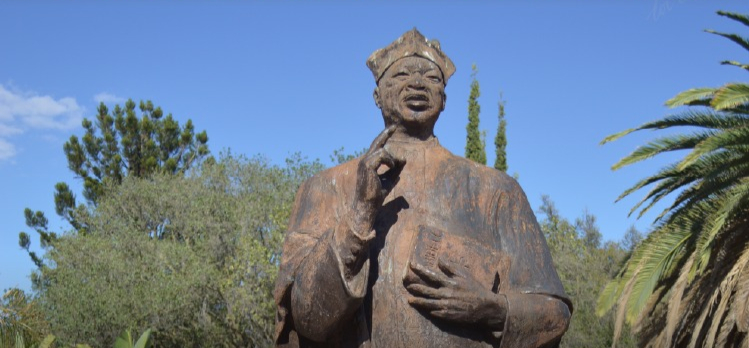
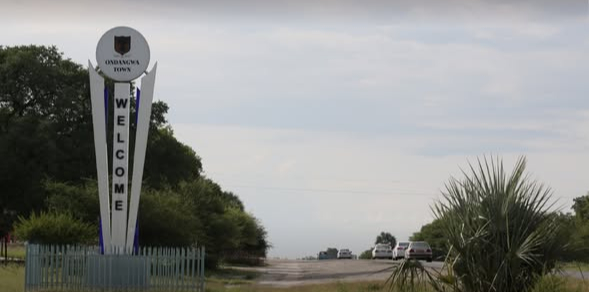


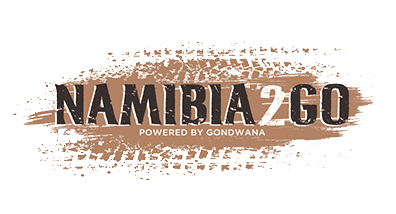

.png)
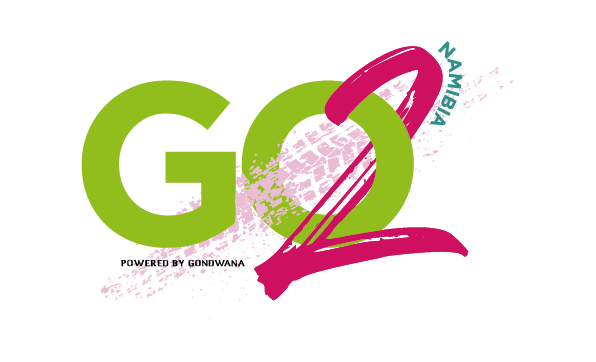
SUBMIT YOUR COMMENT